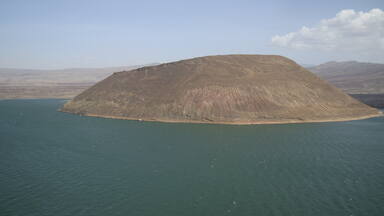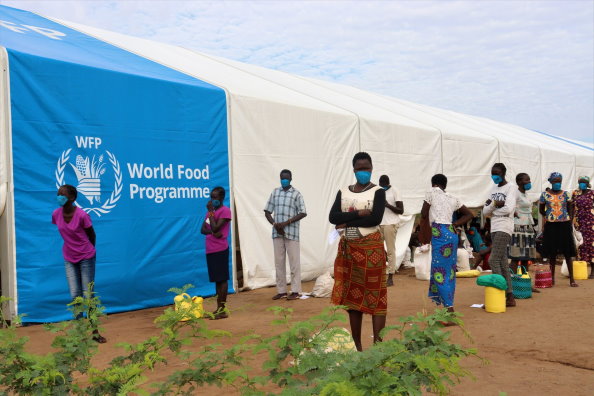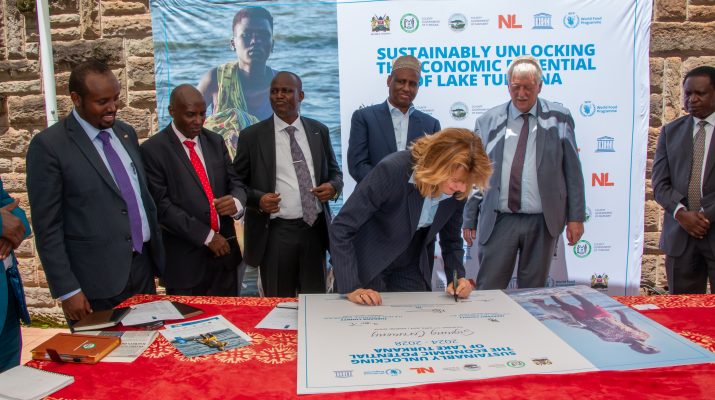By Dorothy Musyoka
Both Marsabit and Turkana counties are reported to have some of the highest rates of child malnutrition in the country. Residents of the two counties are set to receive aid following the signing of an agreement between the Kingdom of Netherlands, the World Food Programme (WFP), and the United Nations Educational, Scientific and Cultural Organization (UNESCO).
The agreement is meant to improve the livelihoods, food security, and nutrition of communities living along the shores of Lake Turkana in Northern Kenya.

Through a contribution of Ksh.1.4 billion by the Kingdom of Netherlands, UNESCO, and WFP plan to partner with Marsabit and Turkana county governments to transform fishing communities.
The partnership will see communities around the lake benefit from integrated water resource management, modern fishing equipment, cold chain facilities, and improved handling, storage and transportation. This will mitigate post-harvest losses, and enhance market access through partnerships with the private sector and job creation for young people.
According to Maarten Brouwer, the Ambassador of the Kingdom of the Netherlands, this collaboration aligns with the Netherlands-Kenya partnership model, wherein counties take the lead, with active participation from community stakeholders, while national government institutions engage from a policy perspective.
“Unlocking the economic potential of Lake Turkana has the potential to eradicate hunger and malnutrition and generate sustainable livelihoods for those who depend on the lake for survival,” said Lauren Landis WFP’s country director in Kenya.

“WFP’s expertise in food systems and vast operational scale, combined with UNESCO’s scientific
knowledge will reduce humanitarian needs by supporting County governments, communities, and families on the frontlines of the climate crisis to protect themselves in the future better,” she added.
The agreement was signed in Nairobi by H.E. Maarten Brouwer, Ambassador of the Kingdom of the Netherlands to Kenya, Lauren Landis, WFP’s Country Director and Representative in Kenya, Alexandros
Makarigakis, Director, and Representative UNESCO Regional Office for Eastern Africa.
H.E. Mohammud Ali, Governor of Marsabit County, and H.E. Jeremiah Lomorukai, Governor of Turkana County were also present to sign the agreement.
According to Alexandros, UNESCO’s role is to ensure science-based decision-making on future investments in fisheries, to advise the local population on the number of fish and water resources
management.
Over the years, Kenya has experienced adverse effects of climate change including drought which has
claimed thousands of lives in the arid and semi-arid regions, Turkana and Marsabit being among the regions severely affected by this phenomenon.
Lake Turkana is the world’s largest desert lake and has an abundance of nutritious fish which is the main source of food, nutrition, and income for the surrounding communities.
Nevertheless, the cumulative impact of recurring climate events like droughts, floods, conflicts, escalating food and energy costs, as well as unsustainable fishing practices, has significantly hindered people’s capacity to secure sustainable livelihoods and ensure food security.
The initiative was designed alongside local communities to empower them to adjust to a shifting climate and promote peace and stability.
The agreement will be implemented for an initial period of five years.

